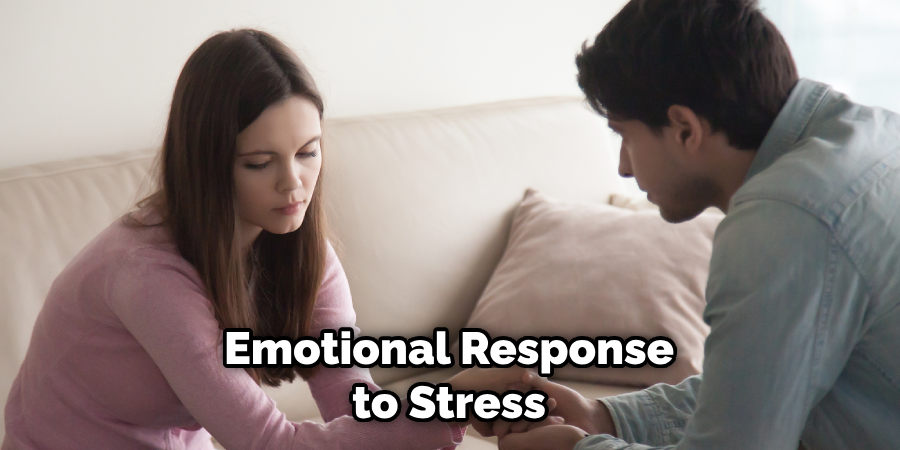Forgiveness is one of the most impressive and groundbreaking aspects of any relationship, particularly in marriage. When you marry someone, you commit to standing by their side through both good times and challenges.

Struggling with forgiveness in your marriage? Discover practical steps on How to Forgive Your Husband and rebuild trust, heal emotionally, and strengthen your relationship for a brighter future together.
However, there will be moments when your husband hurts you, whether deliberately or inadvertently, and forgiving him can feel difficult. Learning how to forgive isn’t just about letting go of the past but about moving forward in a healthier, more loving way. Forgiving your husband may take time and effort, but it is often an essential step in healing and restoring trust in your relationship.
Acknowledge Your Hurt
The first step in forgiving your husband is acknowledging the pain you feel. It’s natural to want to avoid confronting difficult emotions, but the healing process cannot begin until you allow yourself to fully recognize the hurt caused by your husband’s actions.
Whether he said something hurtful, broke your trust, or made a mistake, it’s important to take time to sit with your emotions and truly understand how you feel.
Allow yourself to feel angry, sad, frustrated, or disappointed. Do not suppress your emotions or try to rush the healing process. To move forward, you first need to give yourself the space to process the hurt.
You may find it helpful to express your emotions through writing, speaking to a trusted friend, or talking to a therapist. This helps you gain clarity on your feelings and approach the situation with a balanced perspective.
Distinguishing between the specific behavior or action that caused the pain and your overall feelings about your husband as a person is also essential. Just because he hurt you doesn’t mean he is a bad person.
You may still love him and want to continue your marriage, and understanding that distinction can help you address the situation without assigning blame to his entire character.
Understand the Root of the Issue
Sometimes, understanding the root cause of the issue can make forgiveness easier. Ask yourself what led to your husband’s actions or behavior. Was it an emotional response to stress or pressure?

Was it due to miscommunication? Did he make a mistake out of a lack of awareness? Understanding the context surrounding the event can provide valuable insight and help you approach the situation with greater empathy.
It’s important to have a conversation with your husband to gain clarity on the situation. This discussion should be calm and focused on understanding rather than accusing.
Share your feelings with him, explain how his actions affected you, and give him the opportunity to explain his side of the story. Often, people make mistakes or act out of character due to stress, insecurity, or external pressures, and understanding this context can shift how you view the situation.
If your husband acknowledges his mistake and takes responsibility, it can make the process of forgiveness easier. A sincere and heartfelt apology shows that he is aware of the pain he caused and is committed to making amends. However, it’s important that the apology is not just an empty gesture but is backed by a willingness to change and prevent similar issues from arising in the future.
Practice Compassion and Empathy
One of the most important aspects of forgiveness is cultivating empathy. While it’s easy to focus solely on your own pain, putting yourself in your husband’s shoes can help you see the situation from his perspective.
Just as you have flaws and imperfections, so does he. Understanding that your husband is imperfect, and that he, too, faces struggles and challenges, allows you to approach the situation with compassion.

This doesn’t mean excusing or justifying his behavior, but it does mean acknowledging his humanity and the possibility that he may have acted out of fear, insecurity, or misunderstanding. Sometimes, your husband may even feel guilty for his actions but be unsure of how to show it. Practicing empathy allows you to respond in a way that fosters healing rather than resentment.
Being kind to yourself during this process is also essential. Forgiving your husband doesn’t mean ignoring your own feelings or excusing the hurt you’ve experienced.
In fact, true forgiveness comes from a place of self-compassion — understanding that by forgiving, you are not only helping your husband but also healing yourself. Letting go of anger and resentment frees you from emotional burdens and allows you to move forward with a sense of peace.
Make a Conscious Decision to Forgive
Forgiveness is a choice. It doesn’t happen overnight, and it’s not always easy, but it is a deliberate decision that you can make to move forward. Choosing to forgive doesn’t mean you forget what happened or condone the behavior. Instead, it means that you are choosing to release the hold that anger and hurt have over you.
The decision to forgive is about choosing to heal the relationship, to trust again, and to let go of any negative emotions that are hindering your connection. It’s important to remember that forgiveness is a process that takes time, and it’s okay to take small steps. You don’t need to fully forgive your husband in one conversation or even in a short period. Forgiveness is about progress, not perfection.
One helpful practice in making the decision to forgive is to imagine the benefits of forgiveness. Think about how letting go of the pain will allow you to grow together as a couple. Envision the peace you’ll feel when you no longer carry the burden of anger. Focus on the long-term happiness of your relationship and the desire for a future built on love, respect, and trust.

It’s also important to communicate with your husband about your decision to forgive. Let him know that you are working on moving forward and encourage him to take actions that align with your shared goal of rebuilding trust. Forgiveness isn’t just an internal process — it’s also about rebuilding the relationship and working together to strengthen your bond.
Take Steps to Move Forward
Once you’ve decided to forgive your husband, it’s time to work on moving forward together. Forgiveness isn’t the end of the journey; it’s the beginning of a new chapter in your relationship. To truly heal and rebuild trust, both partners need to actively participate in the process of reconnecting.
One important step in moving forward is to establish healthy communication. Commit to openly and honestly expressing your feelings, needs, and expectations. This can help prevent misunderstandings and avoid future hurt. Regular check-ins can ensure that both partners feel heard and understood, and they provide an opportunity to address any concerns before they escalate.
It’s also essential to set boundaries and create an environment where both partners feel safe, respected, and valued. If certain behaviors led to the issue, discuss how you can both work together to prevent them from happening again. This could involve setting clear expectations, creating new habits, or seeking couples therapy to strengthen your relationship.

Ultimately, the goal of forgiveness isn’t just to let go of past hurt but to build a stronger, more resilient relationship. By actively working together to rebuild trust, communicate effectively, and foster empathy, you can create a deeper connection and a more fulfilling partnership.
Conclusion
Forgiving your husband after he has hurt you can be one of the most challenging experiences in your marriage. However, forgiveness is essential for healing, growth, and the long-term strength of your relationship.
By acknowledging your hurt, understanding the root of the issue, practicing compassion, and making a conscious decision to forgive, you can work toward rebuilding trust and restoring your emotional connection. Remember that forgiveness is a process, and it may take time, but with patience, empathy, and open communication, you can move forward together in a stronger, more loving marriage.




